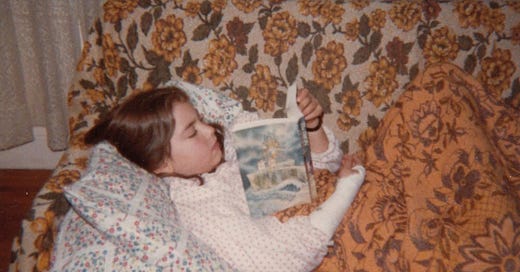Welcome to God is My Special Interest, a newsletter on the intersection of late-diagnosed autism and high control religion! Today we have a guest post by my friend and wonderful writer, Jessica Kantrowitz, where she reviews the book Unmasking Autism by Dr. Devon Price. Jessica is one of the most creative people I know (scroll to the end of this newslett…
Keep reading with a 7-day free trial
Subscribe to Healing is My Special Interest to keep reading this post and get 7 days of free access to the full post archives.




